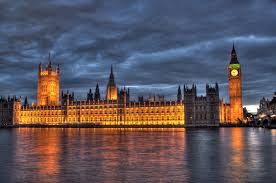31 March 2022
Bye Bye
To fixed-term parliaments.
By Robert Kilconner
Drowned out by the noise from the war in Ukraine, the Dissolution and Calling of Parliament Act slipped quietly through its remaining Parliamentary stages last week. Broadly it repeals the Fixed-term Parliaments Act 2011 brought in to protect the rights of the Liberal Democrat under the then Coalition Agreement and restores things to the status quo ante. The five year period is now once again just the upper limit for a term and the Prime Minister is free to call a general election earlier. Well, no, not exactly call an election, but to request the Monarch to grant a dissolution, a request which the monarch would normally grant save in exceptional circumstances, for example if the request was made to forestall a change in administration. Here the decision is firmly with the Monarch personally, who acts as a kind of umpire. That may restore the old tradition but is a rare example of real political power moving from Parliament to the Monarch in the 21st century. The repeal of the Fixed-Term Parliament Act having been promised in both the main election manifestoes, it is also one of the few bones of contention, the Lords amendment suggesting that a dissolution recommendation be required to carry parliamentary endorsement being rejected, largely on the basis that the old system worked well and that the best thing was simply go back to it.
So back we go. Away from the super majorities which caused such confusion before the last election. Back to the system under which the government could make a bill an issue of confidence so that it would trigger a general election if it failed. Back to the position, now made specific, that the courts could not interfere with the Crown’s decision.
There is no doubt that the Act strengthens the hand of the incumbent administration. Faced with Parliamentary constipation on a difficult issue, it can clear the logjam through direct appeal to the electorate. That is probably what it ought to be able to do in a democracy. Less convincing, perhaps, is the logic by which it can call a snap election at the time when things are looking good. If we were talking about sport, the fact that one side could choose the best time and the other could not would certainly be unfair, but of course we’re not. The question is whether the government can renew the mandate – and the electorate has a history of punishing governments who appeal to them unnecessarily. Ted Heath’s famous question: “who governs Britain?” received a very dusty answer when he put it to the public. This Act leaves it to the voters to decide whether or not they have been “played” through some cute timing.
The Bill which led to the Act was considered at some length by a joint committee of both Houses of Parliament, and the government’s response to the points made by the Committee (and indeed many of the recommendations of the Committee itself) stressed the importance of maintaining flexibility by not including in the legislation itself rules on, say, when a request for a dissolution might be refused. That is consistent with our historic preference for leaving matters open in order to enable practice to evolve with the times, in contrast with the American approach of writing it all down in the constitution with an array of checks and balances. The trouble with checks and balances is that they cannot be adapted easily as the context changes and, as the US legislature wrestles with anachronisms such as the filibuster, there must be those who cast envious eyes on our less formal approach.
But enough of the technicalities. This is also a big political change and particularly so for Her Majesty’s Opposition. With set period parliaments, there would have been a clear expectation as to the likely date of the next general election and all eyes would have been on January 2025. Those selecting candidates and preparing policy would been working towards that month, rather like candidates preparing for a difficult examination. Now an election in 2023 or 2024 is a strong possibility. Fortunately, however, this change has been in the offing for some time so they should not have been too far derailed.


